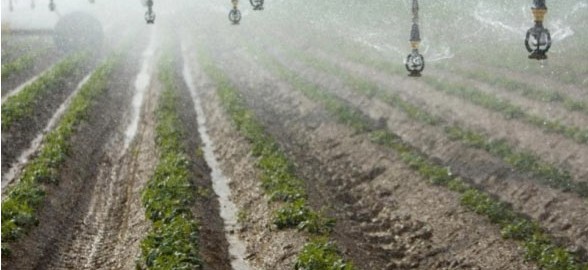Water Day: The world is thirsty because we are hungry
By Ramya Krishnaswamy
The World is Thirsty Because We are Hungry” is the message of the 2012 World Water Day. It puts in a nutshell one of the key links in the complex nexus of water, food, climate and energy: the crucial relationship between water and the production of our food.

The agricultural industry is by far the heaviest consumer, accounting for almost 70% of all fresh water used. In developing countries, agricultural water consumption is as high as 95%. Compare the quantity of water the average person drinks per day, 2 to 4 litres, to that required to grow and produce a single kilogram of cereal: up to 3 tonnes of water. In being produced, the average person’s daily food uses up between 2,000 and 5,000 litres of water. Given how integral water is to agriculture and food production, water is a critical factor in our quest for global food security.
Source: The relationship between water, agriculture, food security and poverty, The Food and Agricultural Organization (Food and Agriculture Organization)
Forecasts for the next 20 years suggest that farmers will need to increase food production by 70 to 100% to meet the growing needs and demands of the world. As people’s diets are changing, there will be an even greater call for meat and dairy products, food that requires particularly high water consumption. And herein lies the water challenge. Because research indicates that within that timeframe, we could face a 40% gap between global demand and supply. Considering that we are already using more than 70% of fresh water for agriculture and that by 2030, we face a 70% increase in demand for food, how will we meet our future needs? We need to make significant and radical changes in agricultural water usage.
For all these reasons, business as usual is not an option for us. We cannot continue to manage water as we have in the past, particularly in the agricultural sector. Rather, we need to tailor solutions to the specific needs of farmers around the world, thereby working towards the the twin goals of meeting food production and managing water better.
The way forward lies in reducing water loss and food wastage; improving the technology we use; implementing policy reforms regarding water availability, rights and pricing; and in facilitating farmer-led changes in behaviour. This herculean task will require collaboration between governments, industries, experts, civil society organizations and farmer associations. In joining forces, stakeholders can create coalitions from a common purpose and vision. The journey towards better water use can also begin locally, by stimulating innovation; creating new infrastructure via which to share knowledge, access to technology and good practices; and piloting approaches that, if successful, can be eventually implemented on a larger scale.
The World Economic Forum has a major initiative underway, set to develop an improved fact base on water and a public-private-civil society platform in support of those governments wishing to implement water reform. This initiative is helping stakeholders work together on the topic of agricultural water management.
On this World Water Day, the World Economic Forum invites all interested parties to join us. Together, we can raise awareness about the future of water and provide the much needed impetus to transform the agricultural consumption of water, with the goal of ensuring our food and water security for the future.
Author: Ramya Krishnaswamy is an associate director at the Environmental Initiatives and manages the World Economic Forum’s Global Agenda Council on water security
